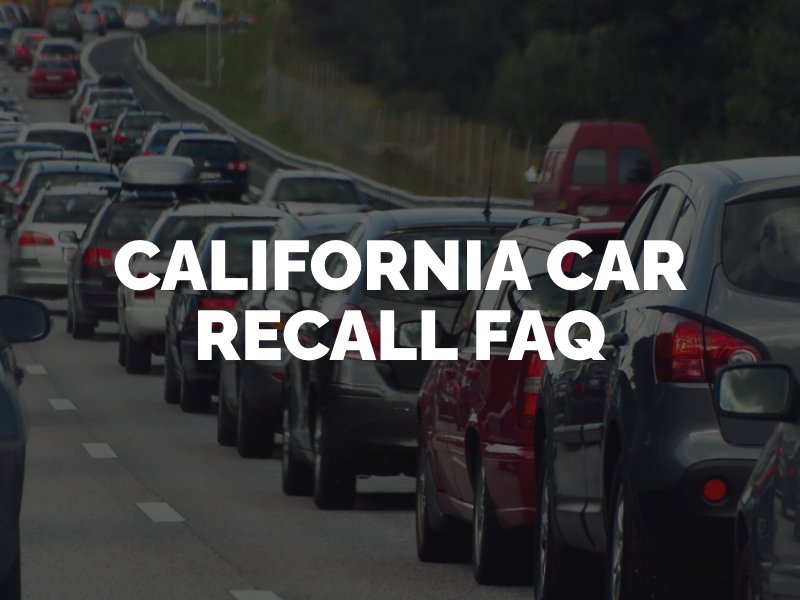California Car Recall FAQ
Motor vehicles contain thousands of moving parts that must all be in proper working order for a car to operate safely and correctly. A single motor vehicle defect could be enough to compromise the safety of the car and cause a catastrophic car accident. If a vehicle defect is discovered, the car may be recalled by the manufacturer or a federal safety organization.

What Is a Car Recall?
A car recall is an announcement made to halt the sale of a certain vehicle and make previous purchasers aware of potential hazards or injury risks presented by a discovered defect. A car recall may be issued by an automaker or organization such as the National Highway Traffic Safety Administration (NHTSA) if it is determined that the vehicle or one of its parts is defective, fails to meet minimum safety standards or creates an unreasonable risk of harm.
How Common Are Recalls?
Vehicle recalls are extremely common. According to data collected by the NHTSA, more than 55 million vehicles were recalled due to safety issues in 2020 alone. Around 900 safety recalls were announced in 2020 across different automakers and vehicle models. According to Forbes, Ford recalled the most vehicles out of all automakers in 2022, with a total of 8 million cars and trucks recalled (more than twice that of any other automobile manufacturer).
Why Might My Car Be Recalled?
A motor vehicle could be recalled for many different safety issues. If any part or piece of equipment present in a vehicle contains a manufacturing, marketing or design defect, the vehicle may become part of a recall notice. Common examples include:
- Airbag defects
- Bad brakes and brake failure
- Defective car roof collapses
- Door latch defects
- Seat belt failures
- Tire defects and blowouts
These part defects can affect the safety or performance of a vehicle and increase the odds of a car accident. A driver may lose control of a vehicle that experiences a tire blowout, for example, and crash. In addition, an accident victim’s injuries may be caused or exacerbated by a defective piece of vehicle safety equipment, such as a seat belt that unlatches in a collision.
How Do I Know if My Car Has Been Recalled?
If you are the original owner of a car, you should receive a written recall notice from the auto manufacturer or NHTSA by mail. You may also be informed of the recall or defect during a routine maintenance check at the dealership. Otherwise, you should check for a vehicle recall yourself using the NHTSA’s Recall Lookup Tool. You can do this by entering your vehicle identification number (VIN), which is typically located on the lower left side of the windshield or the inside of the driver’s side door.
What Should I Do if My Car Is Recalled?
If your vehicle is part of a recall, follow the manufacturer’s instructions and recommendations for what to do next. This may include having your vehicle towed to the nearest dealership for free repairs or receiving a free replacement part in the mail. For safety reasons, you should not drive a vehicle that has been recalled until the required repairs have been made. In some cases, the manufacturer may buy back the car or offer a trade if a defect cannot be remedied.
Who Is Responsible for an Accident or Injury Caused by an Auto Defect?
The manufacturer of a defective car or vehicle part could be held liable, or financially responsible, if a consumer suffers an injury due to the defect. The victim could file a product liability claim in California against the product manufacturer or automaker in pursuit of financial compensation for medical bills and other losses. For more information about car recalls, contact an attorney at Rose, Klein & Marias, LLP to schedule a free case review.
